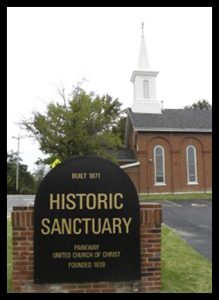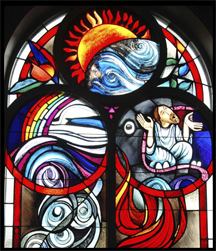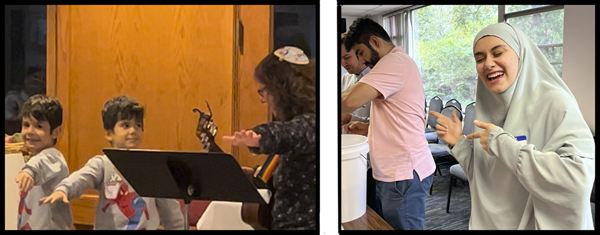Skip to content
Every Sunday at PUCC, bells ring during the Lord’s Prayer, and every day we strive to serve our community and our world. Worship, prayer, and mission are consistent traditions for Parkway United Church of Christ, from our two-century history into a future which reminds us that God is still speaking and compels us to answer God’s call.
In November of 1838, a small flock of German immigrant farmers, led by Rev. Louis Nollau, established the German Evangelical Church of Des Peres. For decades, the church served primarily German Americans, with services and confirmation classes conducted in German. Sunday worship occurred at homes or in other churches. Then, in 1871, members built their own church, and services moved to the location on Ballas Road, now known as our historic sanctuary.
In 1885, a 687-pound bell was installed in the steeple, and a tradition began. The bell rang three times as the Lord’s Prayer was recited during worship so that farmers in the field, unable to attend church, could stop and pray with the congregation. The bell-ringing tradition continues today—a connection with history, and an affirmation of the centrality of worship and prayer in the life of our congregation.
In 1963, a new educational building was opened on the west side of Ballas Road, across from the sanctuary. In 1998, the congregation added a new sanctuary to the education building, moving worship to this new location. A Quimby Pipe Organ was added in 2001, and our beautiful  stained-glass windows were added in 2003.
stained-glass windows were added in 2003.
While Parkway’s church evolved, members were engaged in community outreach and mission from its earliest days. Rev. Nollau, the church’s first pastor, founded the German Protestant Orphans Home. Now known as Every Child’s Hope, this organization provides residential care and family support for children and teens throughout the St. Louis area. Our outreach efforts now include United Church of Christ denominational missions, and goes much farther into the world. Parkway members are leaders in Habitat for Humanity, Circle of Concern and Isaiah 58 food pantries, the International Institute of St. Louis, Special Olympics, and scores of other service organizations, encouraging the congregation to join in ministering to our community.
In recent years, Parkway has further enlarged our church life by partnering with Congregation Shaare Emeth and the Turkish American Society of Missouri (TASOM) to form an interfaith initiative. Sharing study, social gatherings, holiday celebrations, service projects, and worship with these friends has given us a greater understanding of both Judaism and Islam and has strengthened our common commitment to justice, peace, and compassion for those in need.

To clearly announce our values, in 2003, Parkway adopted a commitment to welcoming “all persons, regardless of race, ethnic, or socio-economic background while respecting differences of gender, marital status, age, sexual orientation, and mental and physical ability.” In 2008, we became an “open and affirming” congregation, explicitly stating the welcome we extend to LGBTQIA individuals.
Parkway's commitment to following Christ and sharing his love and peace with all our neighbors, near and far, has remained strong. The bell still rings during the Lord’s Prayer every Sunday, and the congregation still reaches out consistently to offer help to those in need and advocate for “a just world for all.”

 stained-glass windows were added in 2003.
stained-glass windows were added in 2003.
